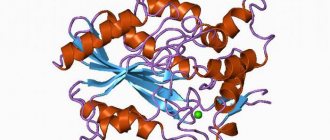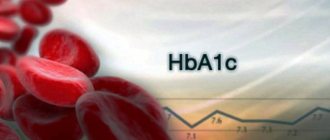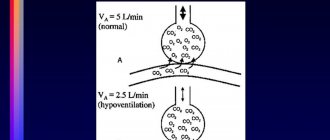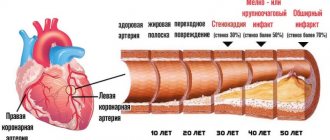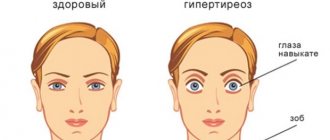Dependence of pressure on the functioning of the thyroid gland
When the pressure begins to “dance”, giving a variety of numbers on the tonometer that exceed the norm, a person looks for the reason. It’s good if you go together with a doctor: the doctor has knowledge. Based on the totality of signs, he can guess where the failure occurred already at the first appointment.
The cardiovascular system is not autonomous, it is also regulated by the endocrine system. If the thyroid gland produces hormones in quantities not required by the norm, can this affect blood pressure? Maybe. And it will definitely have an impact.
Thyroid hormones produced by the gland actively affect vascular tone. They also keep the strength of heart contractions and their frequency under control. A hormonal storm, an increase in the release of hormones, constricts blood vessels through this mechanism. Heart rate increases, sharply, to crisis levels, blood pressure may increase. This explains how the thyroid gland affects blood pressure through an excess of hormones.
Signs of a connection between blood pressure and thyroid pathology
Specific signs will help to suspect that the cause of hypertension is hidden in excess secretion of thyroid hormone, and the disease is associated with the thyroid gland.
Against the background of high blood pressure, a person experiences symptoms:
- Significant increase in heart rate;
- A feeling of vague discomfort behind the sternum;
- Unmotivated irritability: even a rustle can cause an “explosive” reaction, everything is wrong for a person;
- Frequent feeling of hunger, even after eating;
- Subfebrile (low) temperature;
- Migraine;
- Shortness of breath, lack of air;
- Feeling of constant overwork;
- The eyes become bulging;
- There may be convulsions or seizure readiness;
- A swelling of the neck is formed - a goiter.
When at least some items on the list coincide with the condition, it’s time to see an endocrinologist. The thyroid gland is clearly not normal, and the thyroid gland and blood pressure have a close relationship.
If a person’s blood pressure begins to rise, and the reasons have not yet been established, he does not know whether this could be due to the thyroid gland. But having familiarized yourself with the signs indicating the possibility of such a cause, it’s worth thinking about: pressure from the thyroid gland can happen.
How hormones increase blood pressure and cause hypertension
According to rough estimates, hypertension affects 20-30% of the surveyed adult population.
More than 60% of older people suffer from chronic hypertension.
Of all cases of chronic hypertension, about 0.3% are caused by disorders of the thyroid gland.
Normally, T3 and T4 increase under stress, during physical activity, and at low ambient temperatures.
A condition in which the thyroid gland produces excess amounts of T3 and T4 is called hyperthyroidism.
What are the positive and negative effects of high levels of thyroid hormones:
- Blood pressure rises. The heart contracts more strongly, the blood vessels become toned, and the lumen of the arteries becomes narrow.
The mechanism of coordinated work of the thyroid gland, heart and blood vessels is needed so that a person can instantly respond to a dangerous situation.
With a chronic excess of hormones, hypertension, hypertension, and tachycardia develop.
In addition, pain in the heart area, dizziness, weakness and fainting appear.
The patient suffers from excruciating headaches. Regular migraines can lead to loss of performance.
- Blood rushes to the surface of the body, body temperature exceeds 36.8°C. Thermoregulation helps to survive if the ambient temperature is not high enough, for example, during the cold season.
In patients with hyperthyroidism, an increase in temperature to subfebrile is constantly observed.
- The blood supply to the brain increases, the organ begins to work in an active mode. Memory, attention and reactions become more acute.
The level of wakefulness increases, mental processes proceed faster.
Such changes become useful if you need to respond to some stimulus, conflict or threat from the outside world.
But with a chronic excess of hormones, this mechanism can cause irritability, anxiety, emotional lability and inappropriate behavior.
Ultimately, patients experience panic attacks.
- The muscles become toned, the threshold for convulsive readiness decreases. If the ambient temperature is low, muscle shivering helps to warm up.
If the increase in T3 or T4 levels is caused not by hypothermia, but by stress, then the rush of blood to the muscles makes it possible to fight or flee (the “fight or flight” response).
In hyperthyroidism, this mechanism leads to myalgia, convulsions, psychomotor overexcitation and indigestion.
- Appetite increases. With an accelerated metabolism, you need to absorb large amounts of food.
In case of hypothermia or after physical activity, the appetite helps to return to normal, but with hyperthyroidism this does not contribute to satisfactory well-being.
As a result of overeating, the patient does not gain weight, but experiences nausea, heartburn and vomiting.
If he does not follow a diet, then overeating combined with lipid metabolism disorders can cause atherosclerosis.
And the abuse of sweets against the background of impaired carbohydrate metabolism can cause diabetes.
Thyroid hormones have a tremendous impact on metabolism. Metabolic disorders can lead to premature wear of the heart muscle and fragility of the walls of blood vessels.
Patients with hyperthyroidism are at high risk of heart attack, stroke, or heart failure. Eliminating hyperthyroidism helps avoid premature death.
What should a sick person do?
You need to visit an endocrinologist. A doctor of this specialization will determine whether such a connection really exists. If a person has developed hypertension, and at the same time the thyroid gland is sick, then it will not be possible to normalize the pressure without treating the endocrine organ.
It is not uncommon for a patient to go to a therapist or visit a cardiologist for years, even decades. Complains of hypertension. They change his medications, one after another, stronger and newer, but they do not have the expected effect.
Causes of hormonal imbalance in the thyroid gland
The cause of impaired hormone synthesis may be:
- Tumor processes (benign or oncological);
- Chronic inflammatory intoxication in the body;
- Diseases of the endocrine system - any glands included in it.
Increased secretion of thyroid hormones by the thyroid gland is not always caused by its pathology. Often this is the result of a physiological reaction to stressful situations, or to the stress of physical overload. The secretion of hormones increases, this helps in overcoming one-time emotional or physical increased stress.
If stress of any kind becomes regular, it depletes the thyroid gland. It is more susceptible to malfunctions.
The whole body is at risk. Diseases may develop:
- Hypertension;
- Heart ailments with severe pain symptoms;
- Fainting;
- Migraine;
- General weakness.
It’s not for nothing that hypertension is listed first. It develops more often than other diseases due to stress. There is even a concept: “hypertensive character” - the character of a person who reacts sharply to stress factors. And he reacts this way from a surge of thyroid hormones that spur emotions, the effect of which on blood pressure has been scientifically proven.
With frequent stress, neurological disorders are added, common to hypertensive people and people suffering from thyroid diseases:
- Depression;
- Panic attacks;
- Anxious suspiciousness;
- Increased irritability.
Methods of therapy
If during a medical examination it was revealed that deviations in blood pressure from the norm are a consequence of thyroid pathology, comprehensive treatment should be prescribed. The patient must monitor blood pressure levels and, if necessary, stop strong surges.
The nature of thyroid therapy, in turn, will depend on whether hyperthyroidism or hypothyroidism was detected and in what form. The endocrinologist may not prescribe treatment at all, but limit himself to monitoring the patient’s condition and adjusting his diet and lifestyle. As a more gentle therapy, homeopathic medicines can be prescribed. In many cases, drug intervention is still required.
When hypothyroidism is diagnosed, medications are prescribed to restore the missing amount of hormones. It can be:
- L-thyroxine. This is a synthetic hormone T4,
- Thyroidin. Combines two hormones: thyroxine and triiodothyronine,
- Triiodothyronine. This is the T3 hormone
- Thyrotome. It contains T3 and T4 together.
When hyperthyroidism is diagnosed, the doctor prescribes medications that can suppress the production of thyroid hormones. Moreover, this can happen either completely or partially. Examples of such medications include:
- Tyrosol,
- Mercazolil,
- Propylthiouracil,
- Metizol.
In the most advanced cases, drug treatment may be ineffective. Then more serious therapy using radioactive iodine comes to the rescue.
Thyroid hypertension
In medicine, a hormonal imbalance dependent on the functioning of the thyroid gland, accompanied by high blood pressure, is called thyroid hypertension. This is not just a term - a serious diagnosis.
The disease can take decades of life if it is not diagnosed and treated. And what’s left cannot be called qualitative: existence.
Each system of the body is a system to work in interaction, harmoniously. The thyroid gland is influenced by all components of the endocrine system:
- Adrenal glands;
- Ovaries or testes (according to gender);
- Pancreas;
- Pituitary gland;
- Epiphysis;
- Hypothalamus.
The thyroid gland itself influences partners in the system to a large extent. If all departments are healthy, there is a coordinated, harmonious interaction programmed by nature. If one person stumbles, he knocks down the entire chain, sending distorted impulses into the system.
The adrenal glands are the first to react. They increase the secretion of catecholamines, which provoke vasoconstriction (adrenaline, norepinephrine), increase the central nervous system and, by these actions, increase blood pressure. Medicines that lower it help in this case only slightly and not for long. Because this is an attempt to relieve symptoms without eliminating the root cause.
Advice to hypertensive patients who have not been able to normalize their condition for a long time, to choose medications: consult an endocrinologist. The likelihood that the origins are there, in the endocrine system, is high. Don't waste time: the risk is great.
The thyroid gland and its functions, normal hormone levels
The thyroid gland is one of the most important elements of the human body. It ensures the correct course of many physiological processes, and its deficiency can lead to very serious health problems. It contains 30 times more iodine than blood, which explains the high risk of functional failures of this organ.
Structure
The thyroid gland is located in the neck, slightly above the junction of the collarbones. It has a symmetrical shape that resembles a butterfly or the letter “H”. Its two lobes are connected by an isthmus. Its volume ranges from 18 ml in women and up to 25 ml in men, weight can range from 12 to 25 grams. This organ is actively supplied with blood, passing through about eight of its own volumes in 1 minute. Blood supply occurs through arteries located in pairs above and below; veins located under the gland are responsible for the outflow of blood.
Interesting fact. Problems with the thyroid gland in men are less common, while the cyclical nature of the female cycle often leads to a malfunction of its functions.
This endocrine organ is covered with connective tissue, under which there are follicles of different sizes. The different cell sizes are explained by the ability to produce and store hormones at the same time, without releasing them into the blood.
Functions
The main function of the thyroid gland is the synthesis of hormones responsible for growth, development, and maintenance of body temperature. The amount of their production is controlled by the pituitary gland, and the latter is regulated by the hypothalamus. Both are located near the brain. These three elements are part of a single system that controls all other processes and the state of the body as a whole.
| Weight, kg) | Thyroid gland volume (cm3) | |
| men | women | |
| 12,5 | 12,1 | |
| 41–50 | 15,5 | 14,0 |
| 51–55 | 17 | 15,5 |
| 56–65 | 20 | 19 |
| 66–75 | 25 | 22 |
| 76–85 | 28 | 25 |
| 86–95 | 30 | 28,5 |
| >100 | 34 | 32 |
Table of the normal volume of the thyroid gland in women and men.
Hormones
T4 (thyroxine)
One of the thyroid hormones. It is made from two components: iodine and tyrosine. Is inactive. Main goals:
- regulates metabolism;
- accelerates protein synthesis;
- promotes the absorption of vitamins;
- accelerates oxidation processes in brain cells;
- reduces appetite;
- improves physical endurance;
- controls growth and development.
On a note. Some representatives of the fair sex use drugs containing T4 for rapid weight loss. It must be remembered that abuse of this method can lead to health problems.
The thyroxine level is approximately the same for men and women under 40 years of age. At older ages, its production in women decreases. During the third trimester of pregnancy, its production peaks. The concentration of thyroxine depends on the time of day and season. T4 is most active in the morning and from September to February.
Reasons for increased T4:
- high bilirubin;
- excess weight;
- disorders of the thyroid gland;
- chronic liver diseases;
- thyrotoxicosis;
- taking certain medications.
| Hormone | Normal indicator |
| Total thyroxine (T4) | 62-141 nmol/l |
| Free thyroxine | 1.5-2.9 mcg/100 ml |
| Total triiodothyronine (TZ) | 1.17-2.18 nmol/l |
| Free triiodothyronine | 0.4 ng/100 ml |
| Calcitonin | 5.5-28 pmol/l |
Thyroid hormone levels.
An increased rate can often be determined only by symptoms: increased heart rate, increased blood pressure, frequent headaches, prolonged elevated body temperature, tremors of the limbs, increased appetite, sudden mood swings, poor sleep.
Thyroxine deficiency is very rare and can be easily corrected. In this case, medications containing T4, as well as iodine preparations, are prescribed.
T3 (triiodothyronine)
Necessary for maintaining energy metabolic processes, which enhances nerve conduction. This allows you to regulate metabolic processes in bone tissue and the cardiovascular system.
Reasons for decreased T3:
- excess iodine;
- removal of diffuse toxic goiter;
- mental disorders;
- lack of protein in the diet;
- hyperthyroidism;
- adrenal insufficiency;
- removal of the thyroid gland (entirely or a separate part);
- Hashimoto's thyroiditis (autoimmune disease).
Important. A decrease in T3 is much less dangerous than a decrease in T4. Additionally, low T3 is normal during the third trimester of pregnancy.
What affects the increase in T3:
- overweight;
- thyroid dysfunction, often developing temporarily during the postpartum period;
- thyroiditis;
- HIV infection;
- chronic liver diseases;
- hyperestrogenism;
- taking hormonal medications (including oral contraceptives).
Note. Often, when prescribing tests, the detection of free T3 levels is prescribed. Triiodothyronine, entering the blood, binds to proteins for transport to the desired part of the body. This T3 is called general. The remaining (unbound) hormone is called free. By analogy, free thyroxine is detected.
Relationship between TSH, T3 and T4
TSH is a thyroid-stimulating hormone, the synthesis of which is responsible for the pituitary gland. It controls the production of T3 and T4. Normally, a high TSH implies low T3 and T4. Thyroxine and triiodothyronine are related. The first is the most produced thyroid hormone (90% of the total) and consists of four iodine atoms. One of the detached atoms becomes triiodothyronine.
On a note. The type of disease is determined by the level of all three hormones. Increased levels of T3 and T4 in the blood suppress the production of TSH.
High TSH is a signal of a malfunction in the endocrine system. This can be either a weakening of the functions of the pituitary gland or the thyroid gland. When the latter’s performance decreases, the pituitary gland specifically increases the release of TSH, provoking an increase in the levels of T3 and T4.
Calcitonin
Controls the amount of calcium. As a person ages, less of it is produced, but a sharp increase in this thyroid hormone in women is not a sign of illness during pregnancy or lactation.
Important! Calcitonin is a tumor marker - its increase may indicate the appearance of cancer of this endocrine organ. The hormone has no lower limit; its upper level must be controlled.
The tasks of the hormone:
- saturation of the blood with calcium by influencing certain bone tissue cells (these cells are destroyed, releasing calcium and supplying it to the blood);
- stimulation of the conversion of vitamin D into its active form for the synthesis of calcitriol, which transports calcium ions into the blood from the small intestine;
- increased reabsorption of calcium from primary urine.
Fact. This element is still poorly understood, but is very useful for determining the presence of oncology.
Hormone tests
Tests are prescribed on the recommendation of the attending physician. It is he who determines the required list of hormones, the timing of tests, as well as additional diagnostic methods (ultrasound, blood tests, urine tests, etc.). Based on the research results, it is determined how to treat the thyroid gland. Indications for testing:
- goiter;
- tachycardia;
- problems in the reproductive system;
- low libido;
- disruption of the gastrointestinal tract;
- tremor of the limbs;
- sudden mood changes;
- weakness;
- depression;
- deterioration of hair, skin and nails;
- overweight with low appetite;
- underweight with increased appetite.
Important. Symptoms of thyroid dysfunction in women include irregular menstruation and infertility, and in men - impotence.
Main types of analysis:
Only such a decoction will trigger REGENERATION of the thyroid gland
The goiter will disappear in 3 days! This remedy has become a sensation in the treatment of the thyroid gland!
- T3 is free.
- T4 is free.
- Calcitonin.
- TSH.
- Antithyroglobulin antibodies are the ratio of antibodies to the protein used to produce T3, T4 and TSH. Their number reveals dysfunction of the autoimmune system.
- Antibodies to thyroid peroxidase - the ratio of the number of antibodies to enzymes. When these antibodies are detected, autoimmune diseases can be diagnosed.
A month before the study, it is necessary to stop using hormone-containing medications, and a few days before, iodine preparations. Tests must be taken on an empty stomach; the last meal should be no earlier than 10 hours before the examination. For several days you should not take alcohol, fatty, spicy or salty foods. Before some types of examination, it is recommended to refrain from stress as much as possible, and also not to be nervous during blood sampling for analysis.
Remember. Even a little stress before donating blood for hormones can significantly inflate test results.
Most common diseases
Hypothyroidism
The disease is expressed by insufficient synthesis of T3 and T4, which leads to slow metabolism. Hypothyroidism can be primary or secondary.
Primary is a consequence of insufficient amounts of hormones due to damage to the thyroid gland, which can occur from physical damage, radiation, infections and autoimmune diseases, iodine deficiency.
The secondary case is associated with damage to the pituitary gland or hypothalamus and is very rare. Hypothyroidism can be congenital. In this situation, newborns have an absent or weakly expressed thyroid gland.
Causes of the primary form of the disease:
- autoimmune diseases;
- treatment or removal of diffuse toxic goiter;
- iodine deficiency;
- congenital pathologies (the most common factor is underdevelopment of the endocrine organ).
Symptoms are the following: general weakness and drowsiness, increased fatigue, distracted attention, feeling of cold, swelling of the face and limbs, excess weight, nausea, constipation, irregular menstruation, poor condition of the skin, nails and hair.
To diagnose hypothyroidism, examinations for hormone levels, a blood test for cholesterol, ultrasound, ECG, and electroencephalography (to determine the mental state) are prescribed. Once the diagnosis is confirmed, hormonal therapy is prescribed to increase hormone levels. As a rule, it is lifelong.
On a note. At the very beginning of treatment for thyroid hypothyroidism, the dose of hormones is quite large, but after T3 and T4 are restored to normal, it decreases. An overdose of drugs may cause tachycardia, poor sleep, and in children, excessive activity.
Hyperthyroidism
Hyperthyroidism is an overactive thyroid gland; its symptoms and treatment are the opposite of hypothyroidism. The appearance of the disease is associated with increased thyroxine and triiodothyronine, and it can also be referred to as thyrotoxicosis. Leads to accelerated exchange of processes in the body. There are three forms of hyperthyroidism: mild, moderate and severe.
- Easy. Slight weight loss, increased appetite, tachycardia, rapid pulse (80-100 beats), excessive sweating. Elevated levels of T3 and T4 are diagnosed.
- Average. Weight loss up to 10 kg, pulse about 100-120 beats, hyperhidrosis (sweating), sudden mood swings, hand tremors.
- Heavy. Sharp weight loss, constant tachycardia, pulse from 120-140 beats, heart failure, exophthalmos, tremor of the whole body.
Hyperthyroidism develops due to diffuse or toxic goiter, adenoma of one of the endocrine organs. If these diseases are not observed, then the reason is the destruction of thyrocytes due to autoimmune or postpartum thyroiditis.
Fact. Diseases of this organ are often associated with malfunctions of immune processes, as well as with long-term use of iodine preparations.
For diagnosis, tests are prescribed for the level of free T3, free T4 and TSH, and ultrasound. Therapy in this case is aimed at reducing the production of thyroid hormones and can be drug treatment to reduce T3 and T4, surgical destruction of the thyroid gland, or restoration of its properties using computer reflexology.
Thyroiditis
The general name of the disease, depending on the form, can manifest itself in different ways. Main types of thyroiditis:
- Spicy. It spreads over the entire surface of the organ or over a separate part of it. May be purulent or non-purulent. A rare disease that develops against the background of severe infections or diffuse goiter. In the purulent form, the symptoms include: temperature (up to 40 ° C), chills, pain in the anterior neck, radiating to the tongue and ears, aggravated by movements. There is a headache, aches, and rapid heartbeat. An abscess forms on the gland itself; it feels soft to the touch (if there is pus). The non-purulent form is less pronounced.
- Subacute. Most common in women. Symptoms: fever, pain in the front of the neck, radiating to the ears and back of the head, general malaise, sweating, tremors, increased heart rate, aches. On palpation, one of the sides of the gland is enlarged. This form is caused by a sharp increase in thyroid hormones.
- Chronic. Initially, it occurs without symptoms with progressive changes in the gland tissue. Then there is a feeling of a lump in the throat, difficulty swallowing. At the same time, the gland increases unevenly, its functions decrease. Subsequently, the pressure on the neck becomes stronger, which can cause headaches, difficulty breathing and decreased vision.
Advice. Thyroiditis can occur without symptoms for a long time, causing increasing harm to the body, so it is recommended to take hormone tests once or twice a year.
Autoimmune thyroiditis is the most common form of the disease and is chronic. Also has several forms:
- Latent. Enlargement of the gland with the continuation of its normal functioning.
- Hypertrophic. Complete or uneven enlargement of the organ, formation of nodes, decrease in its performance.
- Atrophic. The gland is normal or reduced, insufficient production of hormones.
To diagnose the form of thyroiditis, a hormone test, ultrasound, CT or MRI are performed. Treatment involves taking medications aimed at restoring or maintaining hormonal levels.
Conclusion
The thyroid gland regulates many processes in the body, so it is necessary to regularly check for possible changes in its functioning. Some diseases can affect reproductive function, so women should begin thyroid treatment in a timely manner.


